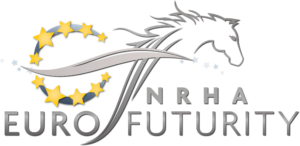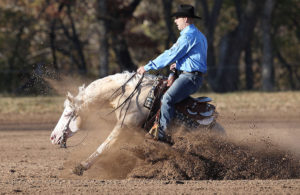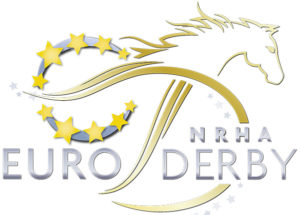The annual National Reining Horse Association Markel Futurity Sales have long been recognized as venues that present only the finest horses to an always appreciative group of buyers. Each year, records are broken, and sale alumni often go on to greatness in high stakes reining competition. In 2020, the sales, which have previously been spread over three days, have been combined into a one-day super sale, set for Dec. 3.
This year’s sales will take place in Arena 6, and the day will start at 8 a.m. with a breakfast sponsored by Q Stallions, the American Quarter Horse Association’s All Stallions Directory. Auction action will begin promptly at 9 a.m. with the National Reining Horse Youth Association Stallion Auction. Breedings to 12 top stallions will be auctioned this year, and NRHyA officers will be presenting each of the stallions for bidding. These available breedings are listed in the Futurity Sale catalog.
Leading off the horse sale will be the Futurity Prospect Sale, an incredible showcase for two-year-old reiners. Buyers will have the opportunity to see these horses ridden the evening before in Norick Coliseum, where groups of six are presented to the audience.
Following the Futurity Prospect Sale is the Select Yearling Sale, presenting yearling reining-bred horses by top reining stallions. Then the focus moves to the Select Breeders sale which showcases broodmares, stallion, weanlings and even embryos. Wrapping up the day of incredible horses will be the Marketplace sale featuring horses from yearlings to show horses.
Although the sale ring action will not pause, lunch and hospitality will be provided during the sales, sponsored by Vaughn Zimmerman’s Not Ruf At All, Cinder Lakes Ranch and Paramount Network’s Yellowstone.
Bidders have a choice of bidding in person, at ringside, or online. Interested bidders can visit nrha.com/sales to register prior to the sale. To be able to bid at sale time, they must be pre-approved by 5 p.m. on Dec. 1. This online bidding is sponsored by Cinder Lakes Ranch.
Doug Carpenter, longtime member of the NRHA Futurity Sale Committee, is excited about the quality of the horses offered in this year’s sale. “I have never seen the depth of the horses we are selling – not only in how well-bred they are but also in their conformation. It is an incredible set of horses! I think we are seeing the breeding coming together – throughout the industry people are breeding great mares to great stallions and it really shows,” he said.
Carpenter continued, “I think it’s fantastic that we are doing the sale in one day on the non-showing day for Futurity. People can come to the sale and focus on that without the sale schedule conflicting with the Futurity competition. In the past, we have had complaints from buyers and consignors because of the sale overlapping the show, and this year that is not going to happen.”
For more information about the sale and to view the online catalog visit nrha.com/sales.








